We are well aware this is a serious turning point for all the people of Afghanistan, but in particular the hard-fought gains that women and children have been able to enjoy.
—Hilary Clinton, “Hilary Clinton, John Kerry, Laura Bush Rally for Afghan Women,” ABC News, November 15, 2013
As an Afghan woman, I find the propaganda line used by the Yankees and the Brits that they must stay in Afghanistan to ‘protect the wimmins’ to be particularly breathtaking in its pathological audacity. We know they’re really there for the oil and gas pipelines, the rare earth minerals and the opium, so please, spare us this BS!
—Bahar Azizi, rawa.org, January 9, 2014
ONE OF MY favorite tumblr sites has the fantastic name Oppressed brown girls doing things. It chronicles the experiences of girls and women who are usually portrayed as passive, voiceless and in needing of protection doing, well, things: women in hijab riding skateboards, competing as weightlifters, and rowing crew; women in saris fighting British imperialists; Native American grannies stealing and even awesomely burning a neo-Nazi organization’s flag. As one of the comments under the image of the Lakota and Dakota grandmothers noted, “I feel like these ladies are the personification of ‘badassery.’” And that’s pretty much how I feel about most of the women pictured on this site.
With the U.S. military declaring plans to withdraw from Afghanistan, Washington and the mainstream media are expressing a renewed concern about the ‘plight’ of Afghan women, and we are once again inundated with stories and images of ‘passive and oppressed’ Muslim women needing U.S. protection. Consider a recent LA Times article called “A Precarious Time For Afghan Women,” which suggests that “Since the Taliban’s fall, women have seen fitful gains. But those with access to education and work fear the U.S. troop departure will erode their freedoms.”
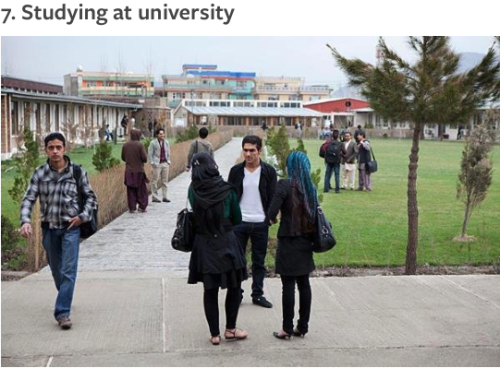
All images from photo essay “14 Powerful Photos Show A Side To Afghan Women Americans Don’t Usually See.” On Tumblr site “Oppressed Brown Girls Doing Things.”
Along the same lines, I saw an image on Facebook the other day of burqa-wearing Afghan women lining up to vote during their country’s recent elections. The image was as different to the ‘women doing things’ tumblr site as possible: burqa-clad masses of anonymous women: relatively passive (they weren’t voting, just lined up along a street waiting), unnamed and unheard from. Instead, the voices accompanying the image were those of the (presumably) U.S.-based commenters, who responded with a range of emotions: from over-zealous expressions of sisterhood, to pity, disgust and smug superiority. Said one, “BRAVE women of Afghanistan lined up to vote today, in spite of dangerous threats made by the Taliban. Rise up women. We are with you. Vote and live free.” Others commented, “Congratulations! We don’t know how lucky we are,” “I predict the problems of the middle east [sic] will be solved when women get their rights,” and “I will never understand why women have to wear a burqa … Real liberation is when they won’t have to wear that blanket over their head anymore.” Even the link was made between Afghan women’s oppression and U.S. military action. As one (apparent) ex-soldier declared: “If the army will take me back this year and send me over I’d stand on guard out in the street protecting every single woman who showed up to vote, and those who showed up to support them.”
As presumably commendable as (at least some) of these comments are, they still function to set up a dichotomy where Americans, and particularly the U.S. military, ‘save’ desperate and weak foreign women. This is consistent with what Nigerian novelist and essayist Teju Cole has called the white savior industrial complex, an institutionalized colonialism that puts the Global North in the position of always ‘saving’ the Global South, which is incapable of ‘saving’ itself. Or, in the sarcasm-laced words of the blogger at Oppressed Brown Women Doing Things, “[I am] pretty tired of the gross misunderstanding that all brown women are “oppressed.” The West will “liberate” us with its perfect understanding of our culture, religion, politics and society because the West is perfect. Come save us while we’re being oppressed…”
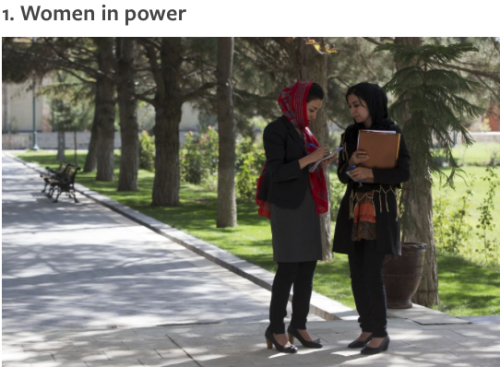
“Saving Women” Justifies War
It was at the beginning of the war, in her now infamous November 2001 radio address, that Laura Bush first framed the war in Afghanistan as a mission to save Muslim women and children. In her words, “The brutal oppression of women is a central goal of the terrorists.” Conflating the Taliban and terrorism, placing them in opposition to “all civilized people,” and linking the two directly to the oppression of Afghan women and children was a central function of her speech.
“We respect our mothers, our sisters and daughters,” she declared, recalling the traditional framing of war as a way to protect both “home and hearth” and “women and children overseas” (This is what anti-racist feminist scholar Zillah Eisenstein has called “the lie of women and children;” a justification used so often that feminist political scientist Cynthia Enloe coined the expression ‘womenandchildren.’) As Laura Bush went on, “Fighting brutality against women and children is not the expression of a specific culture; it is the acceptance of our common humanity – a commitment shared by people of good will on every continent.” (Which always makes me wonder why brutality against men is okay? Are we assuming that women and children are – to borrow a horrible phrase from the AIDS epidemic – “innocent victims” as opposed to their brothers, fathers, husbands and sons who are, by virtue of their gender, somehow “guilty”?)
So, just consider for a moment. How would we in the U.S. feel, say, if we heard that Desmond Tutu, Angela Merkel, or even Vladimir Putin, was bemoaning the condition of American girls and women, speaking out against the sexualization of young girls in our mainstream media (Toddlers in Tiaras! The sexualization of Halloween costumes!), slamming American campuses for the epidemic of college rapes (American women can’t safely educate themselves! Do Americans actually want women to be illiterate?), wondering how the U.S. government could turn a blind eye to the military rape culture documented in films like the award-winning The Invisible War. (Women soldiers who serve their country aren’t protected from rape by their fellow soldiers? Maybe there’s something in American culture that makes this acceptable?) We, who consider ourselves feminists or progressive minded, might in fact take umbrage, wondering why those world leaders were ignoring the long and rich tradition of activism in this country around those very issues. We might be angry that those indignant leaders acted as if there were no Americans in the government, the private sector or in our local communities, who cared about women’s issues at all. We might wonder why they were unable to hear our voices that have so long been raised in protest toward our own liberation.
But let’s put this bi-partisan concern over ‘all the foreign ladies’ in context. (I feel like a Beyoncé song should be inserted here: “If you saved it, then you should have put an army on it. Wu oh oh.”) Concern over ‘saving women’ as a justification for war is in no way new, but has been used with missionary zeal by British, French and other colonialists for centuries now in their relationships with Muslims, Hindus and other subjects. Consider the practice of French colonialists staging elaborate ceremonies in which Algerian women subjects were “unveiled” and thereby “liberated.”
This savior narrative is a deeply patriarchal perspective that locates power in the hands of foreign men and ultimately renders the foreign women they “save” powerless in their own salvation. In examining the British Raj’s opposition to child marriage and widow immolation (sati) in colonial India, post-colonialist theorist Gayatri Chakravorty Spivak coined the phrase, “white men rescuing brown women from brown men.” The trope of “rescuing women” becomes a justification for colonial aggression, but ultimately the voices of the “brown women” are rendered utterly silent. This framing keeps invisible any activism by said brown women in securing their own liberation; rather they are envisioned as perpetual victims in need of external help.
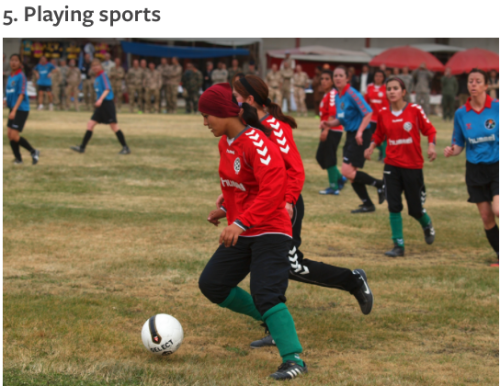
Not just white men, but often white women are positioned in opposition to oppressed women. This is what I call the “your women are oppressed, but our women are awesome” narrative. You can see it most obviously in the 2012 PBS documentary based on the 2009 New York Times best selling book Half the Sky: Turning Oppression into Opportunity for Women Worldwide by Nicholas Kristof and Sheryl WuDunn. The documentary features a number of American actresses going on a global tour of gender oppression with Kristof as their tourguide (Meg Ryan appears shocked in Cambodia as she learns about sex trafficking! Diane Lane weeps in Somaliland as she hears about female genital cutting! Olivia Wilde dances with colorful-exotic abandon with traditionally dressed and beaded Kenyan village women!). The film, like many other similar cultural narratives places these (awesome, liberated, empowered!) women from the Global North in juxtaposition to (downtrodden, voiceless, oppressed) women from the Global South.
Anthropologist Lila Abu-Lughod has suggested in her now classic essay, “Do Muslim Women Really Need Saving?” that the impetus to ‘save’ Afghan or Iraqi women is tied to the post-9/11 U.S. and European obsession with ‘‘The Muslim Woman’ as a figure representing religious and cultural, as opposed to political or historical, explanations of terrorism. As Abu-Lughod argues, “Instead of questions that might lead us to the exploration of global interconnections we were offered ones that…artificially divide the world into separate spheres – recreating an imaginative geography of West versus East, us versus Muslims, cultures in which First Ladies give speeches versus others where women shuffle around silently in burqas.”
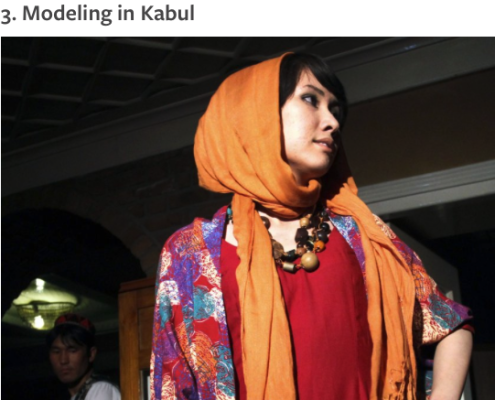
In an article called “A treacherous sympathy with Muslim Women,” Leila Ahmed has suggested that the burqa has become a sort of “shorthand moral justification” for the war in Afghanistan. As she observes,
…books by Muslim women recounting their personal oppressions under Islam soared in popularity in the very years that our wars in Iraq and Afghanistan were in fact costing many mostly Muslim women their very lives….in the period in which the general public was apparently – judging by these best-selling books – deeply empathizing with Muslim women oppressed by Islam, they were simultaneously apparently not much disturbed, let alone outraged, at the unnumbered lives of Muslim women and children destroyed in these wars.
Think about it. When a young woman named Malala Yusufzai was shot in the head by the Taliban for simply wanting an education, the world was justifiably outraged. Yet, as inspirational, strong and amazing as Malala undeniably is, her narrative has been hijacked. There is more to ‘Malala-mania’ in North America and Europe than simply admiration for this actual young woman. The West’s obsession with the military protection of ‘Muslim girlhood’ (For one of many examples, see former U.S. soldier Trent Reedy’s novel for young readers Words in the Dust) is just a new manifestation of the colonialist white savior narrative. [1]
Assed Baig of The Huffington Post has eloquently argued that the West’s obsession with the suffering of girls like Malala is less about the girls themselves and more about white men saving native girls from the savage men of their home nations. “Savages… beyond negotiating with, beyond engaging with, the only way to deal with this kind of savage is to wage war, occupy and use drones against them.” Which leads us to the bizarre notion that we’re actually bombing Afghanistan in order to save girls like Malala. (Do I need to actually need to argue here that bombing the heck out of a woman’s country, killing her fellow citizens, family and maybe even her in the process, isn’t a really great method of ‘helping women’?)
Now, I’m not saying that we shouldn’t support Malala, or be inspired by her story. Of course we should. But we do need to wonder why we as a Western public privilege certain sorts of stories (that support, or at least don’t challenge, our foreign policy) while silencing other stories, like that of fourteen year-old Iraqi Abeer Qassim Hamza Al-Janabi, raped by U.S. soldiers and killed by them alongside her family. The point is that many more young women in Afghanistan have been denied an education – nay, their very lives – by U.S. bombs and drone strikes. Why do we not stand with them too?
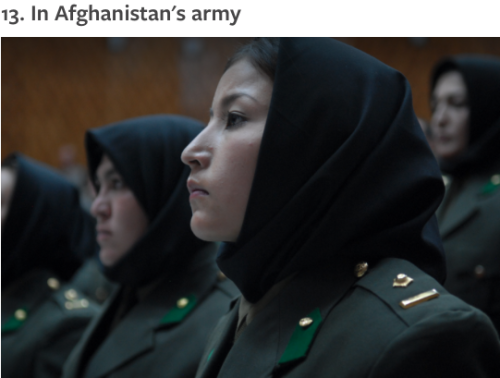
Et tu, Jimmy Carter?
So, here’s the thing, saving the foreign ladies is such the rage these days that even folks who usually take the (unpopular but well thought out) moral high ground are getting in on the act. Even former President Jimmy Carter, my first hero, the first president I ever voted for during my mock elementary school elections, makes ‘saving the women’ the focus of his new book, A Call to Action: Women, Religion, Violence and Power.
At first blush, Carter seems to have avoided some of the pitfalls of colonial feminism in his book. Rather than only focusing on the oppressions faced by women in the Global South (ie. your women are oppressed but ours are awesome!), Former President Carter pays attention to issues like female genital cutting and female infanticide in the Global South and sexual assault in the U.S. military as well as this country’s epidemics of campus rapes. Carter also seems well aware of the dangers of the white savior narrative. Indeed, in interviews, he has been articulate about the fact that Westerners cannot swoop into African or Asian countries and dictate policy. In his words:
…if we westerners – no matter how well we are received – if we go in to a remote village in Africa and so forth and we begin to preach to them that ,’you need to stop circumcising your girls’, ‘you need to stop letting your little girls who are ten years be married’, and so forth – it’s counterproductive…that’s why we have been so careful in this book and at The Carter Center to utilize women who come from those regions, and to let them make their own recommendations…We don’t want our folks to go in there and tell them how to run their business.
But that sense of humility (that Carter is so well loved for) doesn’t stop him from eventually hopping on the ‘let’s save the foreign ladies’ bandwagon. On the one hand, the book begins by chronicling Carter’s youth growing up in the racially divided Deep South, making a parallel between white people who “remained relatively quiet and enjoyed the benefits of the prevailing system” and men who similarly enjoy the benefits of gender inequity. The first half of the book continues, memoir-like, with Carter drawing out bold lessons regarding violence, race and gender oppression from his own life experiences, pre-, during- and post-presidency. He condemns this country’s culture of violence, from mass incarceration to the death penalty, and links that violence to gender, race and class injustice.
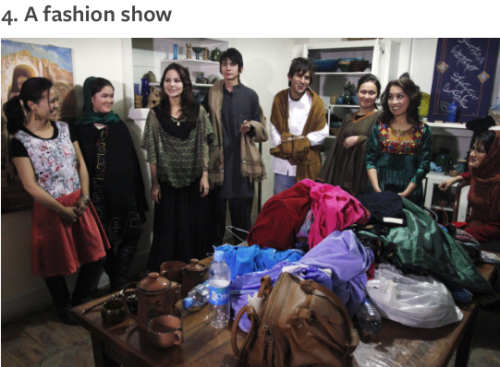
Yet, A Call to Action eventually gets to a ‘survey of global gender oppressions,’ devoting a few pages each to the ‘greatest hits’ of world-wide violence against women including honor killings, infanticide, genital cutting, child marriage, dowry death and sexual trafficking. The second half of Carter’s book even feels like it was derived from a Nick Kristof-flavored savior-narrative. And I have a hunch why. About halfway though (on page 105 of a nearly 200-page book, to be precise) in a chapter called “Learning from Human Rights Heroes,” Carter describes reading Half the Sky, which he calls “a remarkable book.” He goes on to say, “Nick has traveled with us at times to observe the Center’s efforts to promote peace and freedom and to control the many diseases that take their heaviest toll among woman and children. He and Sheryl have done as much to promote women’s rights as anyone I know.” (Now, I’m assuming Carter knows plenty of people. Like, say, Gloria Steinem, Vandana Shiva or Aung San Suu Kyi. But Kristof and WuDunn have done as much to promote women’s rights as any of these activists and world leaders? Hm. Interesting.)
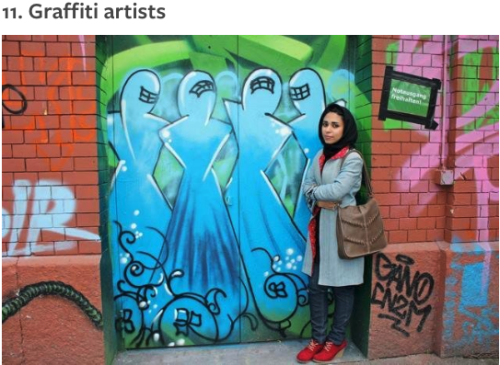
Despite Carter’s critiquing of all religious traditions for their treatment of girls and women, focusing extensively on Christian doctrine’s patriarchal manipulations and even trying to debunk the notion that Islam is any ‘more’ patriarchal or oppressive, it’s inevitable that his book’s linking of ‘women, religion, and violence’ will speak to the deep-seeded Islamophobia that has been sown, grown and harvested here since 9-11. Central to this popular sentiment has been the notion that ‘Muslim culture’ is inherently more ‘oppressive’ to women, and that the religion of Islam is somehow more intrinsically supportive of violence.
A Call to Action can’t be considered outside of its historical context. The book is inseparable from other broader cultural narratives about women, religion and violence in our society today. The possibly accidental – or possibly not so accidental – timing of its publication to coincide with the U.S. Military’s plan to withdraw from Afghanistan is suspect. Despite Carter’s quite open peace activism, his condemnation of the war in Iraq and the use of drone-strikes, it seems inevitable that his book will be used to bolster the justification of some continued U.S. presence in Afghanistan as a means to ‘protect Muslim women.’ Due to its timing, and its resonance with broader cultural narratives about ‘saving’ foreign (particularly Muslim) women, the message of Jimmy Carter’s A Call to Action risks being used to help justify the very violence that its author so abhors. The Call that is being trumpeted may well be to arms.
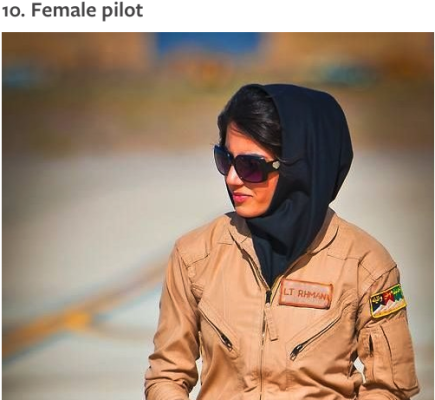
Solidarity vs. Salvation
RAWA, the Revolutionary Association of Afghan Women, the “oldest political/social organization of Afghan women struggling for peace, freedom, democracy and women’s rights,” actively protests both fundamentalism and foreign occupation. They recently published an article by Jean MacKenzie in their newsletter entitled “Afghanistan Newspeak: 10 Ways the U.S. Skews the Narrative.” Indeed, all the talk about ‘saving women’ as a justification for war can be thought of as “newspeak,” yet another way that war itself – and the military aggression ironically named “Operation Enduring Freedom” – has been marketed.
Perhaps the best lesson to understand the conflict in Afghanistan, and therefore future conflicts, is for us to step back and examine the implications of our concern for “The Muslim Woman.” We might also recognize how the gains made toward women’s liberation in Afghanistan have been forged by smart, capable Afghan women themselves. It might feel good to think that we are ‘helping foreign women and girls,’ but good intentions can sometimes be downright dangerous, either compounding the oppression we seek to overturn or creating new oppressions in the process. In the words of the Australian Aboriginal Elder Lilla Watson, “If you’ve come here to help me, you’re wasting your time. But if you’ve come because your liberation is bound up with mine, then let us work together.”
Maybe we could leave aside our obsession over ‘veils’, and instead try to stand in solidarity with our Muslim sisters both in the Middle East and in the U.S. Perhaps we could follow the lead of feminist and anti-violence Muslim activists, instead of trying to rush in and ‘save’ them. We might also do some self examination of how racism and sexism against Muslim women work in our own country, recognizing that hand-in-hand with narratives about Muslim women’s oppression overseas comes an easy Islamophobia whereby Muslim women in the U.S. are racially profiled as terrorists, subjected to violence, or used as symbols to stereotype and dehumanize their families and communities.
Without disrespecting the good work and good will of the many individual U.S. servicemen and women who have been overseas, let me just assert this: The U.S. military has not been engaged in a feminist undertaking in Afghanistan, Iraq, or any other country. The U.S. military is not liberating, it’s not empowering, it’s not even ‘leaning in.’ The U.S. military is not ‘saving’ Muslim women. It’s time we stopped believing that hackneyed narrative, and started recognizing just how harmful even rhetorical weapons of violence can be.
(Cue Queen Bey: “All the foreign ladies, All the foreign ladies, All the foreign ladies, All the foreign ladies … now put your hands up!”)
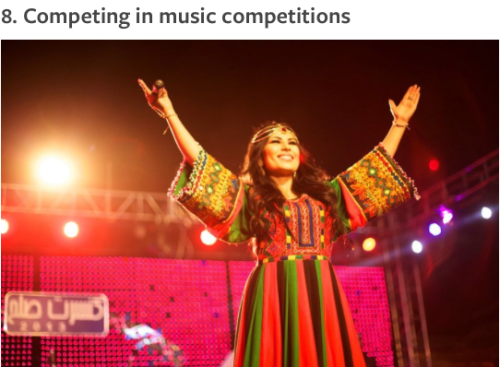
[1] It’s always occurred to me that the first part of her memoir’s title, I am Malala, harkens back to those awful I am African posters that people like Bono and David Bowe did with African ‘tribal’ paint on their faces for the “keep a child alive” campaign. Of course, the rest of her book’s title, The Girl Who Stood Up for Education and Was Shot by the Taliban pretty much guarantees we all clutch our pearls and cry out in moral outrage.



I’ve been waiting for someone to raise these points–kudos. The other strongly suggested message by all this international “concern” is that the United States doesn’t suffer from these problems. It’s a very intentional push: the poor and disadvantaged in the U.S. have completely disappeared from mainstream discourse.
Thank you Richard for your comment. I agree, this outwardly directed gaze of the savior allows for the making invisible of domestic gender/class/race based violence
Pingback: Carter as Kristof: How Jimmy Carter’s New Book Takes a Page Out of Nick Kristof’s Savior Narrative - The Feminist Wire | The Feminist Wire